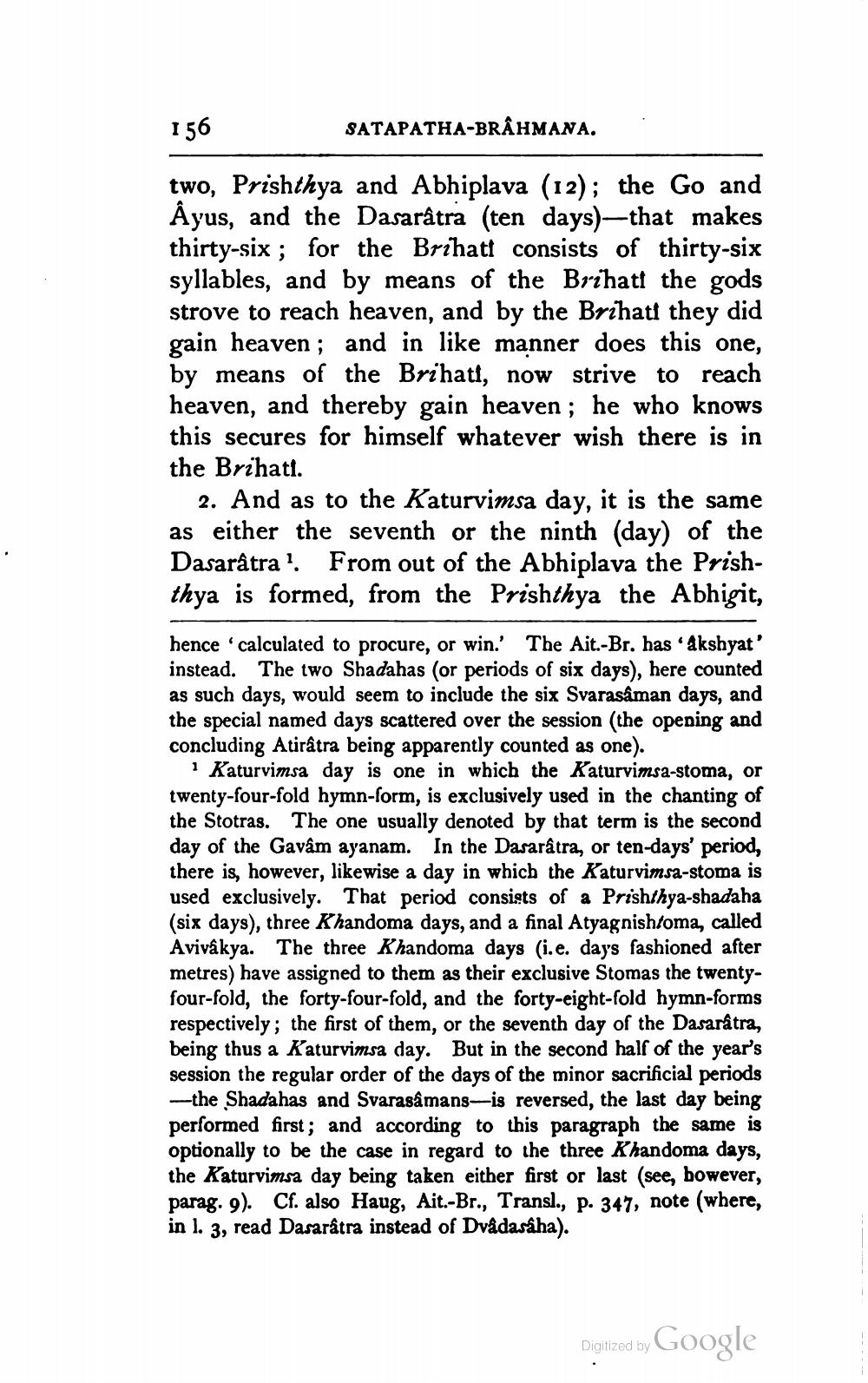________________
156
SATAPATHA-BRAHMANA.
two, Prishthya and Abhiplava (12); the Go and Âyus, and the Dasarâtra (ten days)—that makes thirty-six; for the Brihatt consists of thirty-six syllables, and by means of the Brihat the gods strove to reach heaven, and by the Brihatt they did gain heaven; and in like manner does this one, by means of the Brihati, now strive to reach heaven, and thereby gain heaven; he who knows this secures for himself whatever wish there is in the Brihati.
2. And as to the Katurvimsa day, it is the same as either the seventh or the ninth (day) of the Dasarâtra1. From out of the Abhiplava the Prishthya is formed, from the Prishthya the Abhigit,
hence calculated to procure, or win.' The Ait.-Br. has 'akshyat' instead. The two Shadahas (or periods of six days), here counted as such days, would seem to include the six Svarasâman days, and the special named days scattered over the session (the opening and concluding Atirâtra being apparently counted as one).
1 Katurvimsa day is one in which the Katurvimsa-stoma, or twenty-four-fold hymn-form, is exclusively used in the chanting of the Stotras. The one usually denoted by that term is the second day of the Gavâm ayanam. In the Dasarâtra, or ten-days' period, there is, however, likewise a day in which the Katurvimsa-stoma is used exclusively. That period consists of a Prishthya-shadaha (six days), three Khandoma days, and a final Atyagnish/oma, called Avivâkya. The three Khandoma days (i.e. days fashioned after metres) have assigned to them as their exclusive Stomas the twentyfour-fold, the forty-four-fold, and the forty-eight-fold hymn-forms respectively; the first of them, or the seventh day of the Dasarâtra, being thus a Katurvimsa day. But in the second half of the year's session the regular order of the days of the minor sacrificial periods -the Shadahas and Svarasâmans-is reversed, the last day being performed first; and according to this paragraph the same is optionally to be the case in regard to the three Khandoma days, the Katurvimsa day being taken either first or last (see, however, parag. 9). Cf. also Haug, Ait.-Br., Transl., p. 347, note (where, in 1. 3, read Dasarâtra instead of Dvâdasâha).
Digitized by
Google




